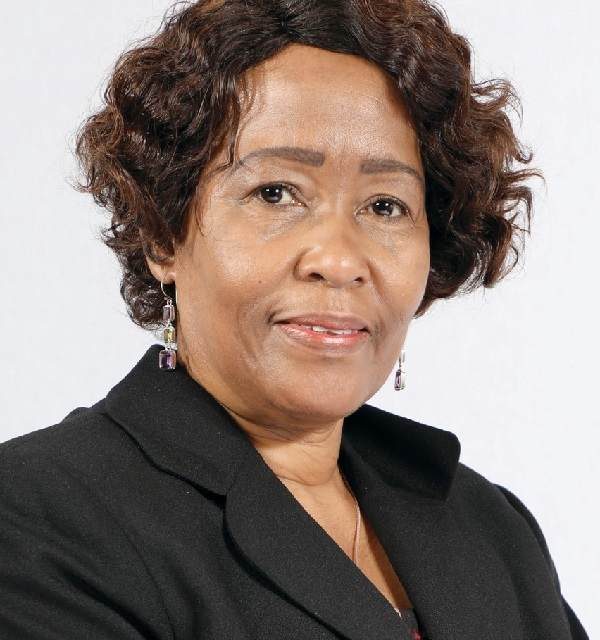
Deconstruct your Pap & Sous- Presidential Advisor on overcoming adversity

“We agree that during these tough economic times, our approach to business whether at household or institutional level can not be business as usual. We need to adapt to the “New Normal”. Despite emerging green shoots here and there, it is not clear how long this economic downturn would last. We are therefore better off using our time and energy in constantly reviewing and adjusting our business strategies to weather the storm.”
These sage words came from the Presidential Advisor on Constitutional Affairs & Private Sector Interface, Ms Inge Zaamwani-Kamwi, when she addressed a breakfast meeting of the Economist Businesswomen Club last week Friday.
She is no stranger to adversity, having steered NamDeb as Chief Executive through the international financial crisis in 2008 and 2009.
“As the then CEO of NamDeb, it was a very difficult time for us. Diamond prices fell by as much as 50%. We therefore had to cut our fixed cost by as much as 50%. In order to survive the downturn, we had to employ a number of strategies including production stoppage, production holidays, vacancies freeze and voluntary separation,” she said.
Looking at various proven strategies to overcome adversity, Ms Zaamwani-Kamwi said “According to recent research by the Harvard Business School, companies, and I hasten to add the government too, that master the delicate balance between cutting costs to survive today and investing to grow tomorrow do well after a recession.”
“These companies reduce costs selectively by focusing more on operational efficiency than their rivals do. They invest relatively comprehensively in the future by spending on marketing, R&D, and new assets. The authors of the research concluded that the referenced companies’ multi-pronged strategy is the best antidote to a recession.”
“The stronger your business is, the less likely it is to be affected by risks associated with an economic downturn. Strengthening your business does not just involve good financial management. It also includes strategies to retain and broaden your customer base, market your business affordably, keep morale high amongst your staff and improve business practices. You should also look for opportunities to network and form alliances. This will help minimize your exposure,” she said.
Listing the point by point advice of two leading business advisory firms, she said the NamDeb management team successfully navigated the downturn by applying a mix of the formal recommendations.
“It is also important that in difficult times, you have a solid Communication Plan, which includes a culture of clear information and some degree of consensus on strategies being employed to address key challenges,” she said stressing that a culture of frank and open communication increases trust levels and mutual respect between the various stakeholders.
She admits overcoming the current constraints are very difficult, not only because the recession is affecting all sectors and all industries, also because of inertia on the part of many entrepreneurs.
For instance, in manufacturing enterprises, there are huge opportunities in meat processing, cereals, cosmetics, detergents, charcoal and clothing, running into billions of dollars. Public Private Partnerships she sees as another business sphere where many new opportunities will arise in the foreseeable future.
In her capacity as Presidential Advisor, she and her colleagues are actively looking at barriers that restrict entry into business.
“We remain a conservative economy looking at the low rate of business activities; Although we have a robust financial services sector, businesses look to Government for financial incentives; Imports substitution as a model for industrialization is lacking; There is a low level of innovation and entrepreneurship, although taking off we are still mainly at an idea level; Private sector leadership is still predominantly men-led; and Where is Women leadership?” she asked in conclusion.












































